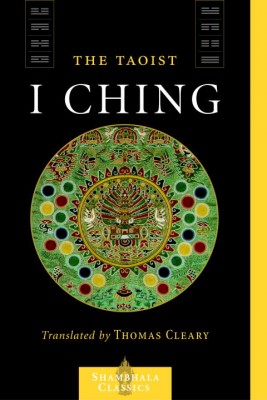| The Taoist I Ching Contributor(s): I-Ming, Liu (Author), Cleary, Thomas (Translator) |
|||||||
 |
ISBN: 1590302605 ISBN-13: 9781590302606 Publisher: Shambhala Classics
WE WILL NOT BE UNDERSOLD! Click here for our low price guarantee Binding Type: Paperback Published: July 2005 Annotation: The "I Ching," or "Book of Change," is considered the oldest of the Chinese classics and has throughout history commanded unsurpassed prestige and popularity. Containing several layers of text and given numerous levels of interpretation, it has captured continuous attention for well over two thousand years. It has been considered a book of fundamental principles by philosophers, politicians, mystics, alchemists, yogins, diviners, sorcerers, and more recently by scientists and mathematicians. This first part of the present volume is the text of the "I Ching" proper--the sixty-four hexagrams plus sayings on the hexagrams and their lines--with the commentary composed by Liu I-ming, a Taoist adept, in 1796. The second part is Liu I-ming's commentary on the two sections added to the "I Ching" by earlier commentators, believed to be members of the original Confucian school; these two sections are known as the Overall Images and the Mixed Hexagrams. In total, the book illuminates the Taoist inner teachings as practiced in the School of Complete Reality. Well versed in Buddhism and Confucianism as well as Taoism, Liu I-ming intended his work to be read as a guide to comprehensive self-realization while living an ordinary life in the world. In his attempt to lift the veil of mystery from the esoteric language of the "I Ching," he employs the terminology of psychology, sociology, history, myth, and religion. This commentary on the "I Ching" stands as a major contribution to the elucidation of Chinese spiritual genius. Click for more in this series: Shambhala Classics |
||||||
| Additional Information |
| BISAC Categories: - Philosophy | Taoist - Religion | Taoism (see Also Philosophy - Taoist) |
| Dewey: 299.512 |
| LCCN: 2005275167 |
| Series: Shambhala Classics |
| Physical Information: 0.94" H x 6.04" W x 9.08" L (1.05 lbs) 338 pages |
| Features: Glossary, Price on Product, Table of Contents |
| Descriptions, Reviews, Etc. |
| Publisher Description: A fascinating two-part Taoist commentary on the classic Chinese text, the I Ching, from the 18th-century adept Liu I-ming The I Ching, or "Book of Change," is considered the oldest of the Chinese classics and has throughout history commanded unsurpassed prestige and popularity. Containing several layers of text and given numerous levels of interpretation, it has captured continuous attention for well over two thousand years. It has been considered a book of fundamental principles by philosophers, politicians, mystics, alchemists, yogis, diviners, sorcerers, and more recently by scientists and mathematicians. This first part of the present volume is the text of the I Ching proper--the sixty-four hexagrams, plus sayings on the hexagrams and their lines--with the commentary composed by Liu I-ming, a Taoist adept, in 1796. The second part is Liu I-ming's commentary on the two sections added to the I Ching by earlier commentators, believed to be members of the original Confucian school; these two sections are known as the Overall Images and the Mixed Hexagrams. In total, the book illuminates the Taoist inner teachings as practiced in the School of Complete Reality. Well versed in Buddhism and Confucianism as well as Taoism, Liu I-ming intended his work to be read as a guide to comprehensive self-realization while living an ordinary life in the world. In his attempt to lift the veil of mystery from the esoteric language of the I Ching , he employs the terminology of psychology, sociology, history, myth, and religion. This commentary on the I Ching stands as a major contribution to the elucidation of Chinese spiritual genius. |
| Customer ReviewsSubmit your own review |
| To tell a friend about this book, you must Sign In First! |